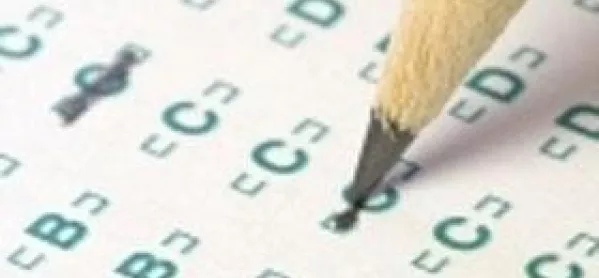“Don’t forget to read the questions carefully” is the standard advice given by teachers to nervous pupils about to sit an exam. But judging from examiners’ feedback on last year’s papers, this wisdom was lost on some candidates.
Each year, WJEC examiners report back with observations and advice for teachers on the previous year’s GCSE and A-level papers. This year’s reports, uncovered by TES Cymru, show many pupils lost vital marks as they forgot to check the back page of the exam paper for questions.
Nearly every examiner emphasised the importance of candidates reading each question carefully.
ICT examiners also reported that it was “sad to see the number of candidates who do not seem to understand what an example is”.
Commenting on sociology, examiners said teachers should emphasise the importance of answering the question set rather than the one they had hoped would come up. And most examiners agreed that students who had good essay-writing techniques did best.
In biology GCSE, examiners said pupils’ handwriting was so poor that some should have requested a scribe or paper transcript (a photocopy of the pupil’s paper annotated to make it clearer) well in advance of the exam. They also said the quality of written English was worse than in previous years.
In the sociology A-level, nearly every student misspelt the word “ethically” as “ethnically”.
In the computing report, teachers of A-level candidates were reminded that examiners would not guess words they could not read. “If it is not clear, then no mark will be awarded,” examiners said.
In some oral coursework for modern languages, the sound quality on tapes was poor - “even unprofessional” - according to some examiners. They advised candidates to check the quality of the recording and reduce the volume if necessary.
Examiners in several subjects expressed concern that students were being entered for the wrong papers. GCSE media studies examiners said some pupils could have achieved higher than a C grade if they had been entered for the higher instead of the foundation paper, an indication that teachers were playing safe.
In general, examiners recommended re-assessing pupils after mock exams and coursework had been handed in.
But the news was not all bad.
Examiners praised teachers for the high quality of one A-level psychology paper; one said candidates wrote elegantly and with a clear understanding of the topic.
“It was a pleasure and a matter of pride to read these papers, knowing how well these candidates had been taught. Teachers are to be highly commended for their work in this examination,” the examiner said.
GCSE media studies pupils were praised for the standard of comics they produced under exam conditions. Examiners said the quality of work was “breathtaking given the short timescales in which candidates have to complete the series of tasks”.
They said this was testament to the excellent teaching at many schools and to “superb preparation for the written test”.
Exam bloopers of 2008- On one GCSE biology paper, several pupils decided the best way to check if water was polluted would be to taste it.
- A number of GCSE home economics students misread “chill” as “chilli”. Examiners said pupils “wrote interesting accounts of chilli used as a culinary ingredient; unfortunately these could not access marks as it was irrelevant to the question”.
- Many GCSE history pupils confused Ronald Reagan, former US president, with his predecessor Franklin D. Roosevelt, while others confused African- Americans with Native Americans, leading to irrelevant discussions about lynching.




